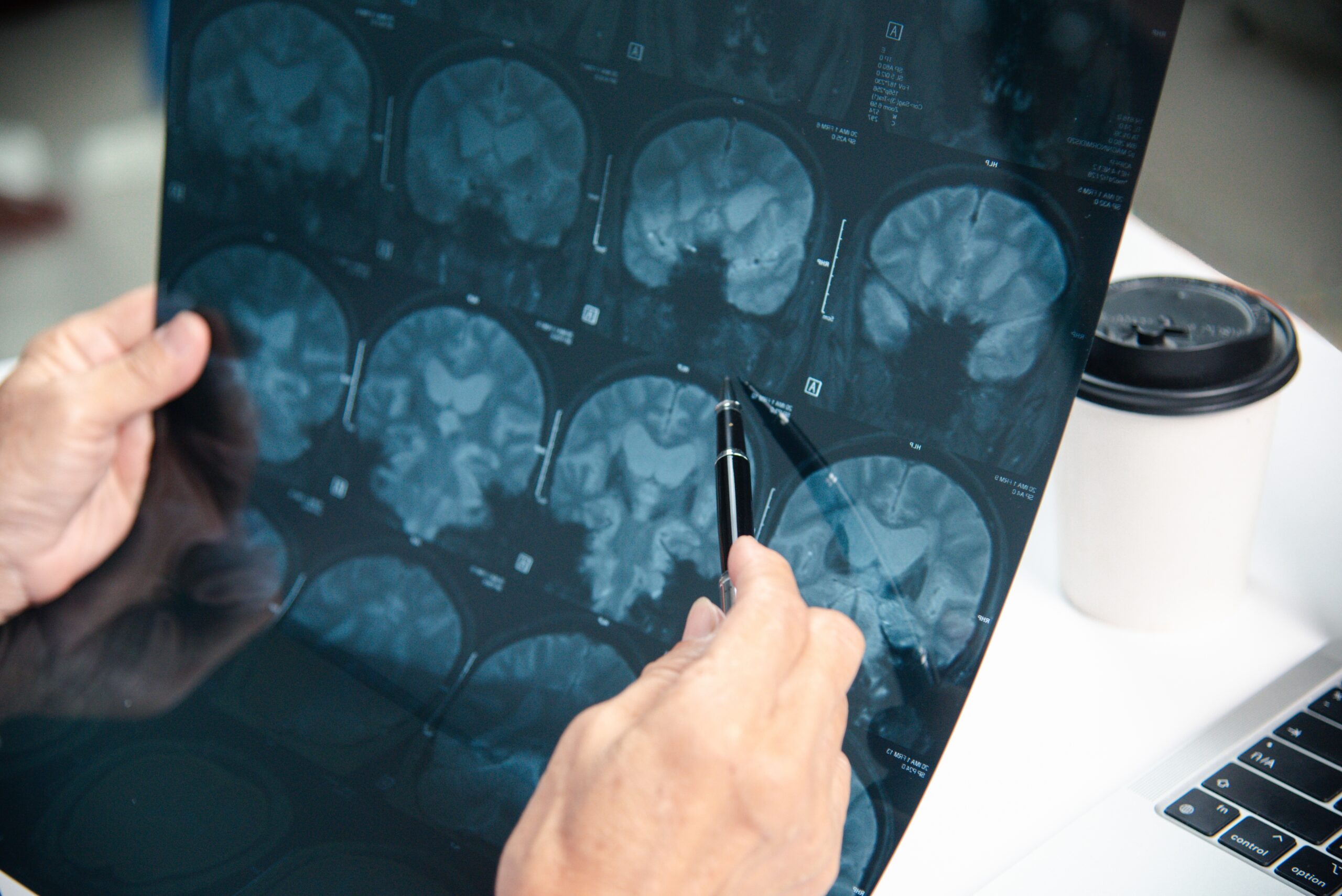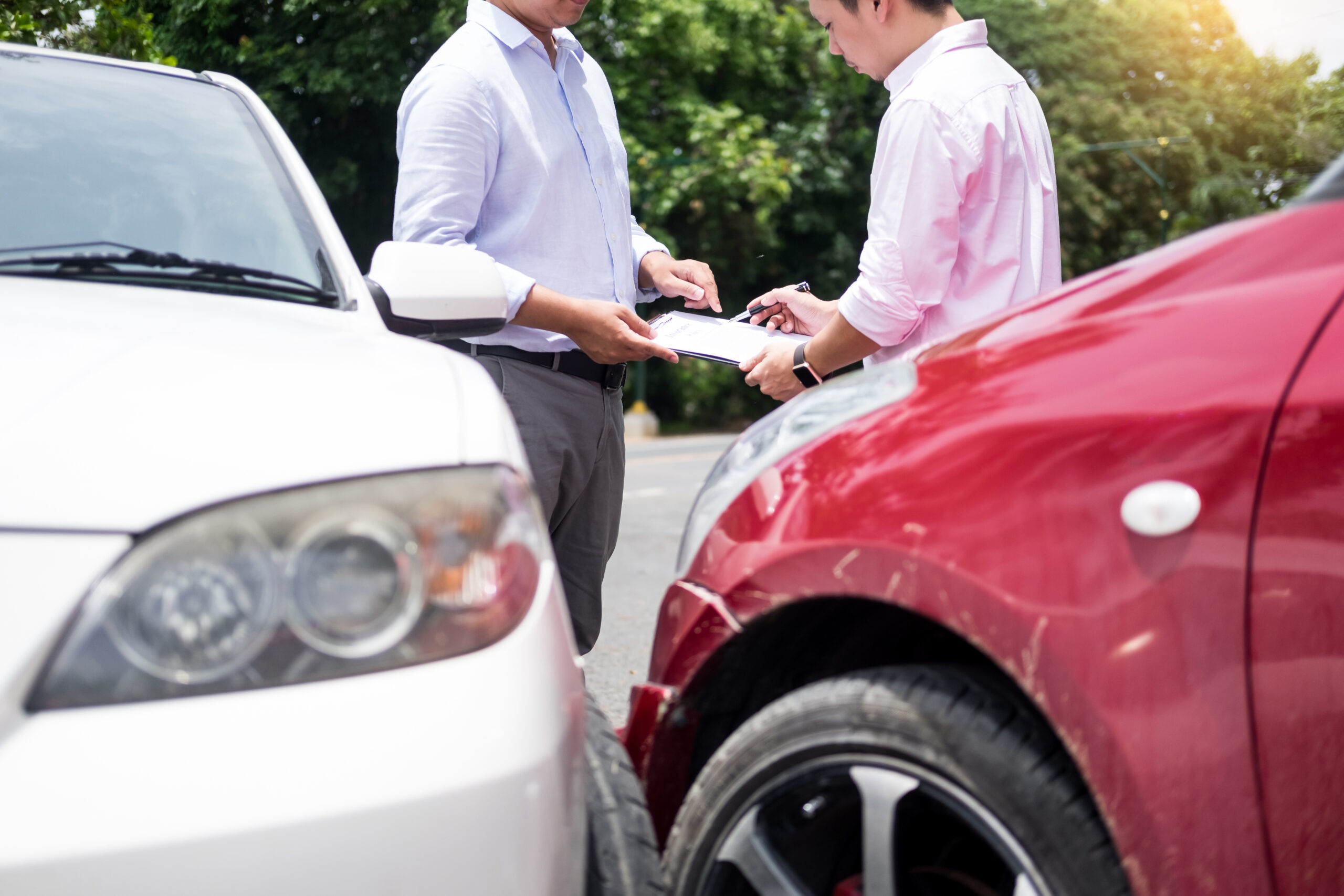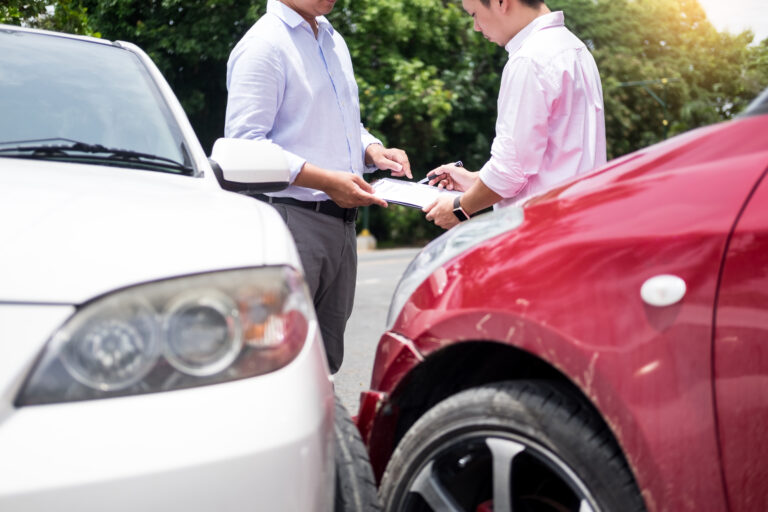
Brain Injuries and How to Recognize a Concussion After an Accident
June 23, 2025
Fee Sharing: The Ethics of Attorney Referral Fees
August 12, 2025
 Experiencing a car accident can be a jarring and confusing event, often leaving drivers uncertain about the critical steps to take next. Beyond the immediate priority of ensuring everyone’s safety and exchanging information at the scene, a crucial question quickly arises: Whose insurance company should you contact, and who ultimately bears the financial responsibility for damages and injuries? Navigating the complex landscape of auto insurance claims and liability can feel overwhelming, especially when you’re already dealing with the stress and aftermath of a collision. Understanding the nuanced rules of auto accident liability is essential for protecting your rights and ensuring you receive the compensation you deserve.
Experiencing a car accident can be a jarring and confusing event, often leaving drivers uncertain about the critical steps to take next. Beyond the immediate priority of ensuring everyone’s safety and exchanging information at the scene, a crucial question quickly arises: Whose insurance company should you contact, and who ultimately bears the financial responsibility for damages and injuries? Navigating the complex landscape of auto insurance claims and liability can feel overwhelming, especially when you’re already dealing with the stress and aftermath of a collision. Understanding the nuanced rules of auto accident liability is essential for protecting your rights and ensuring you receive the compensation you deserve.
Immediate Steps After a Car Accident
What to do after a car accident isn’t always clear, especially if it’s the first time you’ve been involved in a car crash. If you’re ever in an accident, you need to:
- Check on the other driver and passengers to make sure everyone is alright
- Call 911 for immediate assistance if anyone requires medical attention
- Get to safety if possible and/or pull your vehicle into the shoulder or a nearby parking lot (if the crash is minor)
- Exchange contact and insurance information with the other driver/s
Whose Insurance Should You Call First?
After a car accident, it’s important to take the right steps to protect your health, your rights, and your claim. The process will look different depending on the severity of the accident.
If the accident is minor and there are no serious injuries:
- Alert the authorities. You may need to call 911 or the non-emergency line for a law enforcement dispatch. The documentation they provide will be crucial in the claim process.
- Call your own insurance provider. Report the accident and any damage.
- Provide basic information, including:
- Date, time, and location of the crash.
- Names and insurance info of all involved drivers.
- Photos of vehicle damage and the scene.
- Police report number, if available.
- The other driver should contact their insurer and report the accident as well.
If the accident involves serious injuries:
- Call 911 immediately and get medical help on the scene. Follow all of the directions and recommendations of the first responders, such as seeking medical treatment.
- Focus on your safety first. Emergency responders will take you to the hospital if needed. If they advise that you visit the Emergency Room, you should go. Keep detailed records including medical reports, medical bills, and notes.
- Once stabilized, contact your insurance company to notify them of the accident.
- Call a personal injury lawyer before speaking with the other driver’s insurer or accepting any settlement.
A personal injury attorney can:
- Work with your insurance provider.
- Handle communication with the at-fault driver’s insurer.
- Protect you from blame-shifting tactics.
- Ensure your claim reflects the full impact of your injuries.
Following these steps helps preserve your rights and strengthens your chances of a fair outcome.
Understanding No-Fault Insurance
Florida’s no-fault insurance laws make it a little different from most states in that each driver’s own insurance pays for car or truck crash property damage and personal injuries. If your own insurance policy limits aren’t high enough to cover all your damages, then you may need to go after the other driver’s insurance or assets.
This “no-fault” insurance system is different than most states that use at-fault insurance policies. In an at-fault state, whoever is responsible for an auto accident is liable for the damages. Whether or not no-fault is a benefit or detriment to drivers really depends on the situation and how the state determines negligence.
Florida’s Unique Approach
In Florida, every driver is required to carry at least $10,000 of personal injury protection (PIP) and $10,000 of property damage liability insurance. If vehicle damages and injuries aren’t serious, getting your own insurance company to pay for damages is often easier than arm wrestling the other driver’s insurance company for the compensation you deserve.
Drivers without insurance will receive no compensation from the other driver’s insurance company unless the severity of their injuries meet the state’s no-fault threshold and they can prove the other driver shares at least some of the blame for the accident.
What Happens When Costs Exceed My Policy Limits?
You may be able to take the other driver to court if your injuries are significant and may result in permanent disability or disfigurement. Personal injury protection only covers economic damages related to accident injuries, so you may also be able to sue the other driver for non-economic damages like pain and suffering. The “no-fault threshold” is designed to limit lawsuits between motorists except in cases involving serious accident injuries.
The other driver’s insurance company won’t want to pay for your medical costs if they can avoid it, even if your injuries are severe and may result in permanent disability. That’s why many injured Florida drivers turn to personal injury lawyers with experience in auto accidents. Personal injury lawyers investigate accidents and negotiate on behalf of injured people to ensure they receive fair compensation to cover their medical costs and property damage.
Liability Rules in At-Fault States
If you get into a car accident in Georgia, Texas, Illinois, Louisiana, South Carolina or any other at-fault state, the insurance of the driver who caused the accident generally pays for your bodily injuries and property damage. There are several reasons why you should still call your own insurance company first if your accident was in a normal fault state:
- Some insurance providers can help with negotiations or the logistics of getting your claim paid by the other driver’s insurance company.
- If the other driver’s insurance company is disputing fault or being slow to process your collision damage claim, your own insurance might pay for repairs and then fight the other driver’s insurance company for compensation.
- If you have towing coverage on your policy, you can get your car towed without having to pay for it out of pocket.
- If you live in a state with Medpay coverage you can use it to cover initial health care costs – Medpay is available in Florida, but it is not required.
- The insurance company may need to defend you against accusations of fault from the other driver.
- Your insurance will want to know the details in case the other driver’s insurance company contacts them in an attempt to get money for damages.
- An accident may affect your insurance policy, and failing to be transparent or honest with your own insurance company can have serious consequences.
- If you have uninsured or underinsured motorist coverage, your own insurer might end up paying for some or all of your property damages or injuries.
Coverage for Uninsured or Underinsured Motorists
Uninsured/underinsured motorist coverage (UM/UIM) is one of those types of insurance that may seem like a waste of money until you need it. There are a lot of uninsured drivers in Florida. In fact, according to the most recent numbers from the Insurance Information Institute, Florida has the sixth highest rate of uninsured drivers on the road (20.4 percent). There’s a one in five chance that the person who hit you doesn’t have insurance coverage.
Your insurance company doesn’t want to cover your claim if they can avoid it, which is why they’ll put in the legwork and investigatory effort necessary to get the other driver’s insurance to pay. If an Amazon driver caused the accident, it raises additional legal challenges as they are covered by a limited commercial auto policy.
Are You Liable if Someone Else Drives Your Car
The answer is a little more complex than a simple yes or no. It’s helpful to think of your auto insurance as your car’s insurance rather than your insurance. If you have current, valid auto insurance and someone (who has your permission to be driving your car) gets into an accident with your vehicle, they will be covered since your car is insured. Your insurer might even require everyone of driving age in your household be listed on your auto insurance policy for this exact reason.
If you let a friend drive your vehicle and they get in an accident, they might be covered under permissive use provisions. Those provisions essentially extend your coverage to anyone you let drive your vehicle.
What If the Borrower Has Their Own Insurance?
Chances are your insurance would still be billed first. You’d likely need to:
- File the accident claim with your insurer
- Pay any necessary deductibles
- Suffer any premium increases as a result of the accident
However, your friend’s insurance might pick up any damages in excess of your policy limits. Keep in mind that in a no-fault state like Florida your insurance will need to pay medical bills regardless of who was at fault. If the other driver was responsible for the accident, and not your friend or family member, you may be able to seek damages against them for any costs in excess of your policy limits.
Liability if Your Car is Stolen
If someone steals your car and then gets into an accident, your insurance company should cover the damage to your vehicle. However, they likely won’t pay for injuries the thief suffers, and you won’t be personally liable for any damages the thief causes to other people or property.
Things can get more complicated if a family member takes your car without permission and then gets into an accident. If a friend or someone with their own insurance coverage takes your car without permission and gets into an accident their insurance would likely be billed for damages first, and then your own coverage would pay for damages over the driver’s policy limits. If your unlicensed child takes your car and gets into an accident, your own policy will have to cover damages.
Liability Risks When Allowing Others to Use Your Car
If you knowingly let someone illegally use your vehicle you could potentially be liable. Giving your keys to a drunk friend or letting an unlicensed driver take your vehicle for a drive could open you up to liability if they get into an accident with your car.
It’s important to understand your own coverage before you let someone else get behind the wheel of your vehicle. If your policy has a permissive use provision, your friend is licensed to drive, is sober and has their own coverage, there’s little risk in letting them take your vehicle.
Whether you need a car crash lawyer depends on the type of accident, whether the person driving your car has their own personal injury protection insurance and who was responsible. If your friend didn’t have permission to drive your car but they did so anyways, you may want to speak with a lawyer. These cases can get complicated because the other driver could potentially go after you if their property damage and injuries were serious and exceeded their own PIP policy limits. If you didn’t give the driver of your vehicle permission to use it, then it’s not right for you to be held financially liable. The insurance company might not see it that way. They may just assume that since it was your car and someone you knew was driving it, your policy and assets are fair game.
Passenger Injuries and Insurance
In Florida, each person’s own personal injury protection (PIP) insurance pays for up to 80 percent of the treatment cost for injuries they suffer in a car crash, as long as they have enough coverage.
The driver of the vehicle in which the passenger is injured is normally responsible for medical costs if the injured person is a member of the driver’s household. The driver’s personal injury protection (PIP) insurance coverage should pay for up to 80 percent of treatment costs.
If you’re injured as a passenger in someone else’s vehicle but you have auto insurance coverage for your own vehicle, your own PIP insurance will cover the cost of your injuries – even though you weren’t driving your vehicle at the time of your injury. If you are injured as a passenger in someone else’s vehicle and you don’t own a vehicle but someone else in your family/household DOES have PIP coverage, your family member’s PIP insurance may cover the cost of your injuries. If you don’t own a car or you don’t have insurance for your car and no one else in your household has PIP coverage, you can file a claim against the insurance of the driver of the vehicle you were in.
The above rules also apply to pedestrians or bike riders who are injured by a motorist. Pedestrians are covered by their own PIP insurance, or a family member’s PIP insurance, if they have it. If the pedestrian has no available PIP coverage, the driver responsible for the accident may be liable for medical costs. Florida drivers are not required to extend their own PIP coverage to family members, but they can elect to do so. PIP coverage, regardless of whose it is, will also cover up to 60 percent of the injured person’s lost wages (up to the policy limit).
In many situations PIP benefits must be claimed within 14 days of an accident. If you’re ever injured in an auto accident, it is vital you seek medical care as soon as possible to secure this benefit.
The PIP limit is shared among all the injured vehicle occupants eligible to receive the benefit. If the accident was serious enough to cause injuries, $10,000 may not be enough to pay for 80 percent of the driver’s medical costs and the medical costs of all the injured passengers. You may be able to sue the driver of the other vehicle if your injuries “pierce the tort threshold” – also known as the no-fault threshold. Drivers and passengers may also be able to sue for non-economic damages such as pain and suffering.
In a no-fault state like Florida, each driver’s insurance coverage pays for their own injuries and the injuries of any passengers eligible to receive PIP benefits. The only way a car or truck’s driver or their passengers can take the other driver to court for economic damages is if their injuries meet certain requirements. These requirements can be found in Florida statute 627.737 Tort exemption; limitation on right to damages; punitive damages. In Florida, an injury must cause:
- Significant and permanent loss of an important bodily function
- A permanent injury of some kind (according to a doctor’s reasonable long-term diagnosis)
- Significant permanent scarring or disfigurement
- Death of the driver or passengers in the vehicle
Making the case that an injury is significant or causes some important permanent loss of function is often left up to personal injury lawyers. Some lawyers are better than others at arguing that a driver or passenger’s injuries pierce that no-fault threshold. What if your ability to grip things is permanently hindered by an auto accident injury? A reduction in hand strength might not be considered a permanent loss of an important bodily function by an insurance adjuster or judge. What if that loss of dexterity will negatively affect your livelihood or prevent you from pursuing your hobbies? In that case, a loss of hand strength could be considered a significant loss of bodily function. Whether or not you succeed in negotiations or prevail at trial may depend on how well your lawyer can make the case that your injuries should be considered significant.
The law in Florida says “significant” for a reason – it’s subjective. What is or isn’t significant can vary based on the person or on the seriousness of the injury. There aren’t any clear-cut measures of injury severity because there are a limitless number of personal injury scenarios, and there’s no one-size-fits-all rule that will result in fair outcomes for every auto accident.
Special Rules for Taxi and Rideshare Accidents
Receiving compensation is sometimes easier for passengers in a taxi because they are more heavily regulated than rideshares. If you’re riding in a taxi and you’re injured in an accident, you, the driver and all the other passengers will likely be able to share that $250,000 instead of the $10,000 you’d have if you were just riding in a privately owned passenger vehicle.
Rideshare accident injuries can be a bit more complicated. In some rideshare accident cases the passengers in a rideshare will need a lawyer to prove the Lyft or Uber driver was negligent to gain access to special Lyft or Uber coverage, or they may still be eligible to receive compensation from their own insurance or the PIP coverage of a family member.
Can You File a Personal Injury Lawsuit Following an Accident if You Don’t Have Auto Insurance?
Yes, you may be able to file a personal injury lawsuit after a car accident even if you don’t have auto insurance. However, your legal options may be limited, and your path to compensation could be more challenging. If you’re uninsured, you may still pursue a claim against the at-fault driver, but success depends on several key factors.
In most cases, lawsuits are only practical when:
- Your injuries are severe, resulting in high medical bills or long-term disability.
- The at-fault driver has insurance or substantial personal assets.
- Your damages exceed policy limits and no other coverage is available.
If the driver who caused the accident lacks liability insurance, you may have to pursue their personal assets. But many uninsured drivers have few assets to collect, which may make recovery unlikely.
You may have more options if another party shares responsibility. For example:
- If the driver was operating a company vehicle, the business’s commercial liability policy may apply.
- If a defective vehicle part contributed to the crash, you could have a claim against the manufacturer.
- If poor road conditions or faulty traffic signals played a role, a local government agency may share liability.
These cases are complex, but an experienced car accident attorney can help identify all possible sources of compensation. Even without insurance, you may still have legal grounds to pursue recovery. An experienced lawyer can help you understand your options.
Property Damage vs. Personal Injury
Florida’s PIP rules only pertain to actual injuries. Every driver is also required to carry property damage liability coverage. That means if someone else gets into an accident with your car, and they were at fault, your policy will need to pay out on the other driver’s property damage claim.
PIP also doesn’t cover pain and suffering damages – only actual injuries. Pain and suffering after auto accidents can be real and devastating, and people deserve compensation for the long-term negative effects of auto accident injuries. PIP will cover some lost wages, but only 70 percent for up to 14 days. In many cases people are out of work for much longer than two weeks. Those lost wages also come out of your PIP policy limit, which might only be $10,000. That $10,000 can run out quickly after a car accident.
Why You Might Need a Personal Injury Lawyer
Relying solely on PIP is often inadequate after major car accidents. That is why many people who have suffered serious injuries after car crashes benefit from speaking with a personal injury lawyer.

